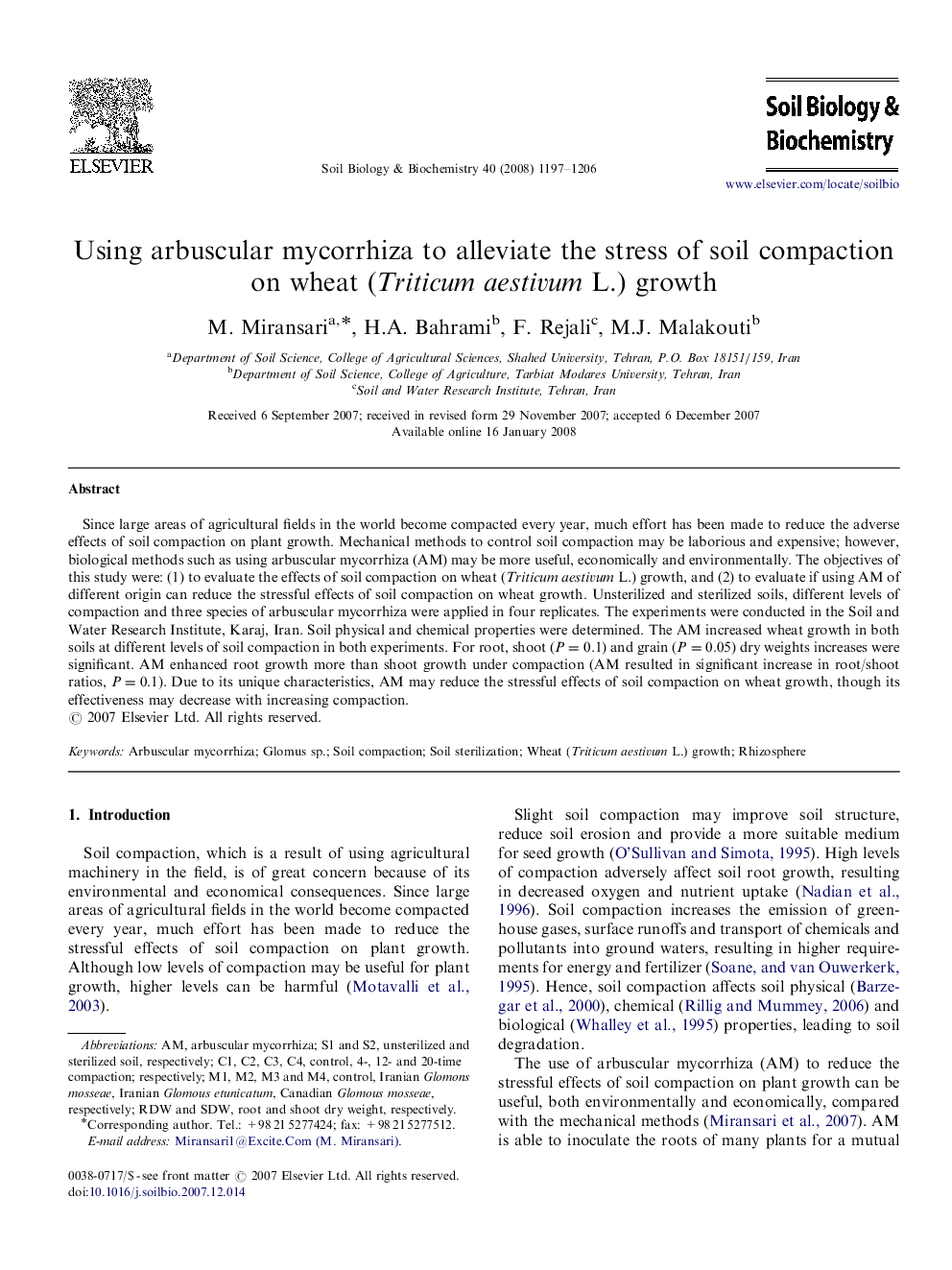| Article ID | Journal | Published Year | Pages | File Type |
|---|---|---|---|---|
| 2026035 | Soil Biology and Biochemistry | 2008 | 10 Pages |
Since large areas of agricultural fields in the world become compacted every year, much effort has been made to reduce the adverse effects of soil compaction on plant growth. Mechanical methods to control soil compaction may be laborious and expensive; however, biological methods such as using arbuscular mycorrhiza (AM) may be more useful, economically and environmentally. The objectives of this study were: (1) to evaluate the effects of soil compaction on wheat (Triticum aestivum L.) growth, and (2) to evaluate if using AM of different origin can reduce the stressful effects of soil compaction on wheat growth. Unsterilized and sterilized soils, different levels of compaction and three species of arbuscular mycorrhiza were applied in four replicates. The experiments were conducted in the Soil and Water Research Institute, Karaj, Iran. Soil physical and chemical properties were determined. The AM increased wheat growth in both soils at different levels of soil compaction in both experiments. For root, shoot (P=0.1) and grain (P=0.05) dry weights increases were significant. AM enhanced root growth more than shoot growth under compaction (AM resulted in significant increase in root/shoot ratios, P=0.1). Due to its unique characteristics, AM may reduce the stressful effects of soil compaction on wheat growth, though its effectiveness may decrease with increasing compaction.
